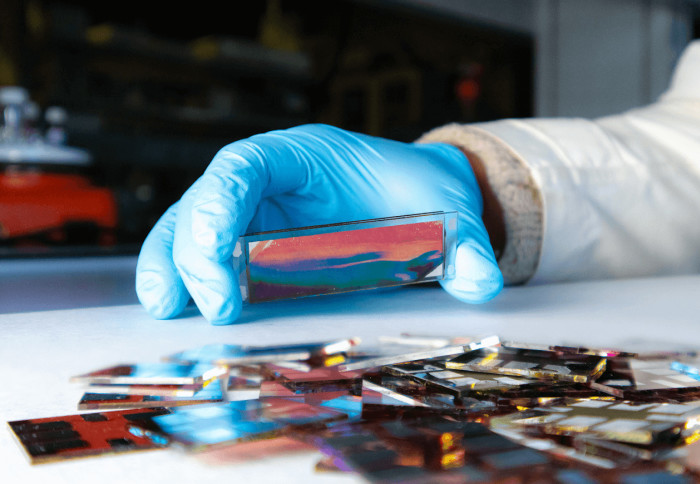Solar cells and better batteries: News from the College

Here’s a batch of fresh news and announcements from across Imperial.
From using machine learning to design solar cells, to new battery technology for renewable energy, here is some quick-read news from across the College.
AI for solar cell design
 Printable organic solar cells offer a highly scalable way to convert sunlight into energy but finding the best blend of materials is tricky because there are many parameters to consider, from the structure of each component to the blend composition and film thickness.
Printable organic solar cells offer a highly scalable way to convert sunlight into energy but finding the best blend of materials is tricky because there are many parameters to consider, from the structure of each component to the blend composition and film thickness.
Now, Imperial researchers have teamed up with the Institute of Materials Science of Barcelona and the University of Rovira i Virgili to use machine learning to find new optimal designs more quickly.
The Spanish researchers, led by Mariano Campoy-Quiles, used a high-throughput technique to create films of solar cell materials that were graduated by composition and thickness, leading to hundreds of different configurations. The resulting large dataset was used to train a machine learning algorithm, which could then predict the optimum composition of new materials prepared in the lab of Imperial’s Professor Martin Heeney.
Read more on the Institute of Materials Science of Barcelona website.
Finance first
 Imperial’s MSc Mathematics and Finance Programme has been ranked first in the UK and seventh internationally in Risk.net’s annual ranking of the world’s leading quantitative finance master’s programmes.
Imperial’s MSc Mathematics and Finance Programme has been ranked first in the UK and seventh internationally in Risk.net’s annual ranking of the world’s leading quantitative finance master’s programmes.
Programme Director Dr Jack Jacquier said: “We are proud to be recognised two years in a row for being the leading programme in quantitative finance. It shows that through a unique combination of solid mathematical foundations together with technological skills and knowledge that is constantly being updated to accommodate the finance industry does create an impact. Thanks to the Maths Finance group, our alumni and our industry partners who helped create this success.”
Read more at Risk.net.
Better batteries
 Dr Iain Staffell and Dr Oliver Schmidt from Imperial’s Centre for Environmental Policy are part of an £8m Horizon 2020 grant from the European Union to develop a new battery technology for renewable energy.
Dr Iain Staffell and Dr Oliver Schmidt from Imperial’s Centre for Environmental Policy are part of an £8m Horizon 2020 grant from the European Union to develop a new battery technology for renewable energy.
The ‘SOLSTICE’ project will develop batteries that use widely available liquid metals and molten salts heated to several hundred degrees Celsius to store energy from the sun and wind on a large scale, with the potential for much lower cost than conventional energy storage technologies.
These new batteries will be less resource-intensive than lithium-ion batteries when produced on an industrial scale, as well as being safe and easily recyclable.
Read more on the Helmholtz-Zentrum Dresden-Rossendorf website.
–
Want to be kept up to date on news at Imperial?
Sign up for our free quick-read daily e-newsletter, Imperial Today.

Article text (excluding photos or graphics) © Imperial College London.
Photos and graphics subject to third party copyright used with permission or © Imperial College London.
Reporter
Andrew Youngson
Communications Division
Hayley Dunning
Communications Division